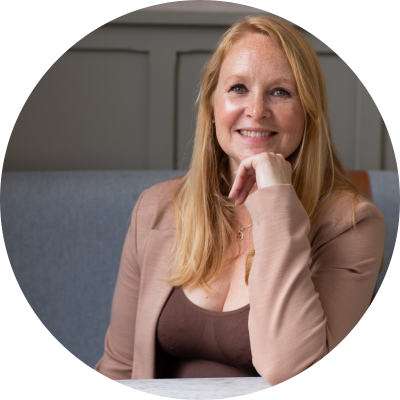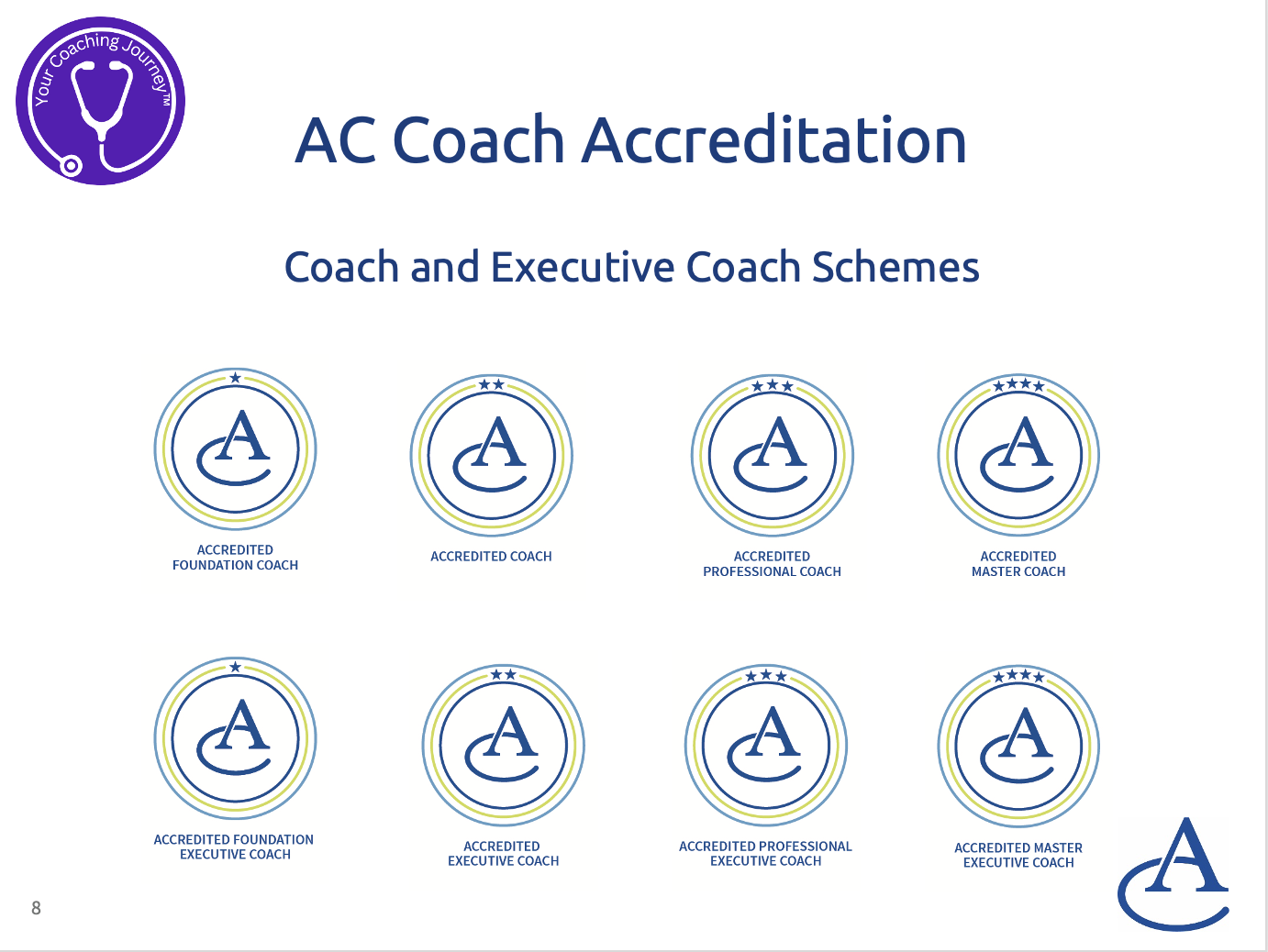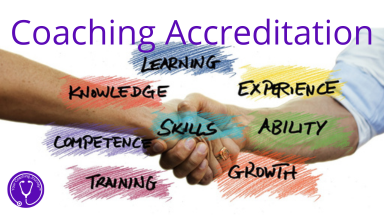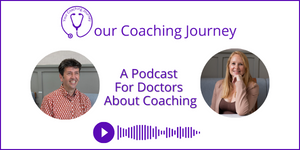
As well as being one of our programme tutors, Helen Leathers is an accredited coach with the Association for Coaching and is one of their panel of assessors for the accreditation process.
What Is Coaching Accreditation?
There are two types of accreditation in the world of coaching. There’s accreditation for the training courses themselves, and there’s accreditation for people individually as coaches. An accredited training course (with one of three main coaching bodies) ensures the quality, standard, and content of your training. Becoming an accredited coach shows that your have been assessed against essential criteria that ensure you coaching to professional standards. Even if you complete an accredited course, you will, if you wish to be accredited personally, need to work through the requirements, gain sufficient experience, and apply to be assessed through the appropriate route with your chosen organisation.
Do I Need To Be Accredited As A Coach?
The easy answer is, no, however, …
Coaching isn’t a regulated industry, therefore, many believe that self-regulation is important. Accreditation can help to differentiate between coaches, and help individuals to choose a coach, knowing that they have been checked out in some way.
Accreditation is about experts in the coaching industry, looking at how people work in that industry and setting some standards and competencies that people can be assessed and measured against.
Accreditation shows that you’re serious about coaching, that they’ve had training, that you are prepared to grow and develop, and that someone else has looked at your coaching and agreed that you’ve met these standards. It may also be a requirement of being employed as a coach, or being accepted on to a coaching panel within an organisation.
We have our coach training accredited by the Association for Coaching. That means our training has been looked at against their standards, and it denotes the level of training, the professionalism of the training and the tutors, and how deep we go into it the topics, coaching skills, and tools. It means that you can be assured that you’re going to be on a very good course that meets and hits certain criteria, as assessed by a coaching body.
Let’s Explore Some Labels
There’s often some conflation of terms: you will see the terms qualified, certified, accredited, and credentialed.
If you are qualified or certified in the coaching world, that’s pretty much the same thing. You have a qualification or certification in coaching.
If you are accredited, you have personally been through an accreditation process with a ‘governing’ coaching body.
If you see the term credentialed, we would suggest checking with whoever is using it, what that means for them as it could mean qualified or accredited.
If you participate in one of our programmes, and meet the qualifying criteria for assessment, you will have an accredited qualification.
What Coaching Bodies Are There Are?
There are three major coaching bodies:
- The Association for Coaching (AC): A global organisation that has both executive and non-executive coaching accreditation pathways.
- The International Coaching Federation (ICF): A global organisation
- The European Mentoring and Coaching Council (EMCC): A European organisation that combines (and doesn’t particularly differentiate between coaching and mentoring)
These are organisations that are interested in the promotion, progression of coaching, and professionalism of coaching.
What About ILM?
Within doctors’ circles, and the NHS, ILM gets talked about a lot in terms of benchmarking of qualifications. ILM is an awarding body, they have people and companies who deliver their approved training courses. It’s not a coaching organisation or an accrediting body in the same way that the others are; it’s not a professional body for promoting the industry.
We also do work with Lifestyle Medics and Health Coaches and for them there is the UK and International Health Coach Association (UKIHCA). Our course is approved as CPD for their portfolio route, which means basically if you are a health coach and you want to go down that route of accreditation with them, our coaching qualification is already approved to be added in to your application as CPD.
We have aligned ourselves with the Association of Coaching. We like their ethos, values, and the way they work, it’s a friendly organisation. All coaching organisations are equally valid it’s just a case of finding a good fit for you. There are, of course, other considerations too, like the cost of membership, and the cost and requirements for accreditation.
Here are the different levels you can apply for with the AC, and a look at the badges they send you on completing a successful application:

How much experience do you need to have as a coach in order to become an accredited coach?
We can only talk about our experience of the AC, but historically, people seem to have waited until they were highly experienced. There was a lot more ‘professional’ and ‘master’ level accredited coaches out there with hundreds of hours under their belt. More recently, since lockdown actually, a lot of people have been applying for accreditation much sooner. The minimum requirement for the Association for Coaching is 50 hours.
50 hours would allow you to become an accredited coach with the Association at the ‘foundation coach’ level, whether executive or non-executive coaching is your area. Then there are three other levels: coach level, professional level, and master level.
As you do more hours, you can increase the level of your accreditation.
The accreditation lasts for three years once you’ve been approved. Then at that point, you can either renew at your existing level, or if you’ve accumulated enough hours, you can move up to the next level. You could even upgrade earlier than three years if you really wanted to.
You will need to submit a new application, and here will be more elements to complete to hit their criteria at that higher level.
What Do You Need To Have Done In Order To Apply For Accreditation?
In order to become accredited, you need to have:
- An appropriate qualification: with a minimum number of coach-specific training hours
- A minimum amount of coaching hours: 50 at foundation level
- You need to have had some supervision: At foundation level, three session between the time that you finish your training and applying. At higher levels, 6 session in the 12 months prior to applying.
- A supervision reference
- Client references
Note: It’s often the supervision that’s missing from a coaches portfolio that might delay their application. It’s always a good idea to check the documentation when you are thinking of applying and see what’s required of you and supervision is something you need to consider far enough in advance of your application for it to be processed.
And then you need to complete the written part of the application which includes:
- A learning / training log
- A written personal coaching approach
- A fitness to practise element: For a foundation coach, that’s a critical reflection of your coaching. At higher levels it includes a recorded coaching session.
- A coaching case study
- A CPD log with reflections,
- A self-assessment of your coaching skills
- A coach development plan
- *At levels above foundation coach the AC also require a written response to certain ethical dilemmas
As providers of an accredited course with the Association of Coaching, we have a fast-track application process. If you want to become accredited after they’ve qualified with us, you will need to request a specific set of forms relating to our course, which, effectively, we have a partly populated for you. Then, everything that we’ve done and asked you to do on the course feeds into helping you complete that application. We are also able to provide some extra training and mentoring on that as well if people are interested.
Helen, What top tips do you have for people thinking about becoming accredited after they’ve qualified as a coach?

First of all, focus on the qualification. There’s no requirement to be accredited, but you do want to ensure you get the most out of your training. What accreditation will do is set you apart from other people. So don’t put too much pressure on yourself. But if it’s something that you do want to do, keep logging your coaching hours and your CPD, and stay on top of those records. Also, keep going with your reflection, because when you then come to apply, you’ll have wonderful resource in your own writings and reflections that will help inform that application.
I think that would probably be my biggest tip – log everything. When I applied, because I had no intention of applying for accreditation when I first trained as a coach, I had to go through all my diary and notes to log my coaching hours, training, and CPD because I hadn’t logged my coaching hours or anything else after the point at which I qualified. It took ages!
For those going through our Transformational Coaching Diploma Programmes, we offer a mini masterclass around accreditation just to give you a little bit more information and details of how to go through it. It’s now available as an online resource so you can work through it whenever they are ready to. It is very much focused on our graduates, but it will benefit anyone who wants an introduction to accreditation. You can find our more here.
To find out more about our Doctors’ Transformational Coaching Diploma click through here



